Fabrizio Ulivieri's Blog, page 50
May 27, 2023
Se io potessi
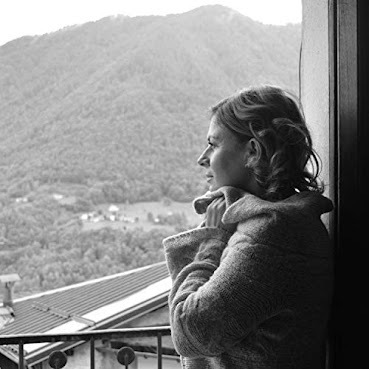
Se io potessi felice vorrei
trascorrere nei giorni con gli occhi sereni e pochi al fianco mio - sol quelli che amo vorrei e sedere e guardare e stare lì e vivere, sospesotra l'altro e questo, mondo, che brutto si fa, solo se questo vedi e credi - non quando sai che giusto vaiper le vie sue che là portano tutte.
Se io potessi benedirei gli uominiper il bello che portano ma spessocome ciechi vivono, e così nonvedono - l'amore mio per loronon è così grande come di Quelloche creati li ha.
Se io potessi vivere vorrei in preghiera
e di puro spirito mai nutrirmi del cibo immondo.
Solo un caffè chiederei, di quando in quando.
Se io potessi vivere vorrei dove
sempre il sole splende, dove gli alberi
ti aspettano sotto la loro ombra
per riposare e dirti "stai!"
Se io potessi sarei quello che mai
ho potuto essere e dire.
Così sia finalmente, e vivi libero ora.
Amen.
Little essay of daily life - what I learned from Pessoa
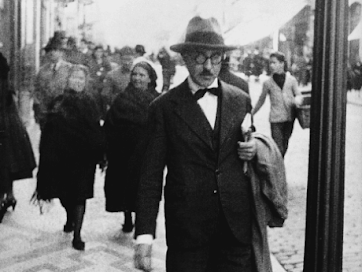
It has been by chance that I came across Ferdinando Pessoa. The first poem of his I read was in a bad English translation. But I felt an energy coming from the fabric of those words. I researched more, until, later, listening to his poems in the original language, read by a wonderful Portuguese male voice, I discovered the beauty of his poems. Which are often sharp, witty and desecrating and also veiled with melancholy like the poem Há metafísica bastante em não pensar em nada.
Pessoa shows his intimation to remain where the visible ends:
Não acredito em Deus porque nunca o vi.
Se ele quisesse que eu acreditasse nele,
Sem dúvida que viria falar comigo
E entraria pela minha porta dentro
Dizendo-me, Aqui estou!
...
Mas se Deus é as flores e as árvores
E os montes e sol e o luar,
Então acredito nele,
Então acredito nele a toda a hora,
E a minha vida é toda uma oração e uma missa,
E uma comunhão com os olhos e pelos ouvidos.
Mas se Deus é as árvores e as flores
E os montes e o luar e o sol,
Para que lhe chamo eu Deus?
Chamo-lhe flores e árvores e montes e sol e luar;
Porque, se ele se fez, para eu o ver,
Sol e luar e flores e árvores e montes,
Se ele me aparece como sendo árvores e montes
E luar e sol e flores,
É que ele quer que eu o conheça
Como árvores e montes e flores e luar e sol. [1]
And when I am forced to face the ugliness of the poor human matter that surrounds me daily, I learned his lesson and I never try to go beyond the little it shows, because
Cada coisa é o que é [2]
It is therefore useless to look beyond what does not exist because it would be a vain effort to persist in it, for in hoc saeculo, in this transient world:
Tudo isso é absolutamente independente da minha vontade [3]
In fact, the problem of being such a poor living thing is theirs, and not mine.
PS. I believe in God. But The lectio magistralis by Pessoa, I find it perfectly applicable to daily life.
----------------
[1]
I don't believe in God because I never saw him.
If he wanted me to believe in him,
Without a doubt he would come and talk to me
And he would enter through my door within
Telling me, Here I am!
...
But if God is the flowers and the trees
And the mountains and Sun and moonlight,
Then I believe in him,
Then I believe in him at all hours,
And my life is all a prayer and a mass,
And my communion with the eyes and through the ears.
But if God is the trees and the flowers
And the mountains and the moonlight and the Sun,
Then why should I call him God?
I call him flowers and trees and mountains and Sun and moonlight;
Because, if he made himself, for me to see him,
Sun and moonlight and flowers and trees and mountains,
If he appears to me being trees and mountains
And moonlight and Sun and flowers,
It is that he wants me to recognize him
Like trees and mountains and flowers and moonlight and Sun.
Each thing is what it is(Pessoa - A espantosa realidade das coisas)
[2]
All of this is absolutely independent of my will(Pessoa - A espantosa realidade das coisas)
Follow me on Substack

May 26, 2023
Piccolo saggio di esistenza quotidiana - la lezione di Pessoa
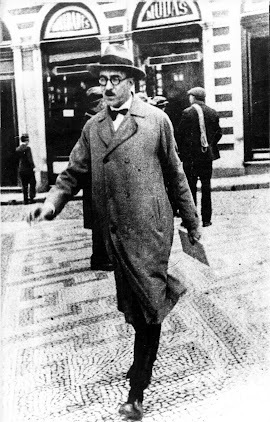
Ho scoperto Pessoa, per caso.
E l'ho scoperto per caso in una traduzione inglese brutta che mi aveva dato l'impressione di un poeta di poco valore.
Ma poi ascoltando i suoi poemi in originale, letti da una meravigliosa voce maschile portoghese, ho scoperto la bellezza dei suoi poemi. Che spesso sono arguti e dissacratori e velati anche di malinconia come il poema Há metafísica bastante em não pensar em nada.
E' ovvio che non sono d'accordo con il suo apparente materialismo, ma perché è un materialismo apparente perché si limita a non volere andare oltre ciò che è visibile, come la siepe di Leopardi, muove e stuzzica il pensiero o a volersi fermare o ad andare oltre appunto. È il pensiero di Pessoa accenna a questo, ma è forse con poca forza, coraggio, o volontà per andare più oltre quel velo che lui così bene descrive.
Não acredito em Deus porque nunca o vi.
Se ele quisesse que eu acreditasse nele,
Sem dúvida que viria falar comigo
E entraria pela minha porta dentro
Dizendo-me, Aqui estou!
...
Mas se Deus é as flores e as árvores
E os montes e sol e o luar,
Então acredito nele,
Então acredito nele a toda a hora,
E a minha vida é toda uma oração e uma missa,
E uma comunhão com os olhos e pelos ouvidos.
Mas se Deus é as árvores e as flores
E os montes e o luar e o sol,
Para que lhe chamo eu Deus?
Chamo-lhe flores e árvores e montes e sol e luar;
Porque, se ele se fez, para eu o ver,
Sol e luar e flores e árvores e montes,
Se ele me aparece como sendo árvores e montes
E luar e sol e flores,
É que ele quer que eu o conheça
Como árvores e montes e flores e luar e sol.
E por isso eu obedeço-lhe,
(Que mais sei eu de Deus que Deus de si próprio?),
Obedeço-lhe a viver, espontaneamente,
Como quem abre os olhos e vê,
E chamo-lhe luar e sol e flores e árvores e montes,
E amo-o sem pensar nele,
E penso-o vendo e ouvindo,
E ando com ele a toda a hora [1]
E la melodia della sua lingua mi concilia con la bruttura umana che mi circonda, e ho imparato la sua lezione quando mi trovo ad affrontare siffatto materiale umano con cui non cerco mai dį andare oltre quel poco che mostra, perché
Cada coisa é o que é [2]
E dunque inutile cercare oltre quello che non esiste e di cui è vano sforzo incaponirsi a parlare e perché ho finalmente capito, che in hoc saeculo, in questo mondo di passaggio,
Tudo isso é absolutamente independente da minha vontade [3]
Il problema è loro appunto, non mio.
---------------------
[1] Non credo in Dio perché non l’ho mai visto.Se egli volesse che credessi in lui,
verrebbe senza dubbio a parlarmi
e entrerebbe dalla mia porta
dicendomi: Eccomi!
...
Ma se Dio è i fiori e gli alberi
e i monti e il sole e il chiarore lunare,
allora credo in lui,
allora credo in lui ad ogni momento,
e la mia vita è tutta una preghiera e una messa,
e una comunione con gli occhi e attraverso gli orecchi.
Ma se Dio è gli alberi e i fiori
e i monti e la luce della luna e del sole,
perché lo chiamo Dio?
Lo chiamo fiori e alberi e monti e sole e chiar di luna;
perché se egli si è fatto perché io lo vedessi
sole e chiar di luna e fiori e alberi e monti,
se egli mi appare come essendo alberi e monti
e chiar di luna e sole e fiori,
vuol dire che vuole che io lo conosca
come alberi e monti e fiori e chiar di luna e sole.
E per questo io gli obbedisco,
(che altro so io di Dio che non Dio di se stesso?),
gli obbedisco nel vivere, spontaneamente,
come chi apre gli occhi e vede,
e lo chiamo chiar di luna e sole e fiori e alberi e monti,
e lo amo senza pensare a lui,
e lo penso vedendo e sentendo,
e sto con lui a ogni momento.
[2] Ogni cosa è ciò che è (Pessoa - A espantosa realidade das coisas)
[3] Tutto questo vive assolutamente indipendente dalla mia volontà(Pessoa - A espantosa realidade das coisas)
Follow me on Substack

An unexpected attraction - the intimation of an encounter

Being a writer nowadays, at this point in human history, takes courage. To spend time writing, to think you can earn a living by writing books, takes courage. He used to repeat it to himself every time he received the cancellation of one of his presentations.
Many people, in his shoes, probably would have drunk to forget the disillusion but he didn't drink. He hated drunk people. He could not understand how you can destroy yourself by drinking alcohol. Such an idiocy.
How many times his courage had changed form during the years, during all those years in which he had written books? Many times, he concluded. He remembered his Florentine season when he lived and worked in Florence. Those had been the years of sex. He was haunted and taunted by sex.
Now he had a wife, he loved her, and his desire for wild sex was gone, it had an almost romantic sex with his wife. The beast that used to inhabit him had become like an amputated limb, a vague but achy memory though, suggested rather than felt.
So he got an insane idea of writing a story about this encounter with the little slut. An encounter that didn't have to happen. He came across this idea because he was wondering whether he was really interested in seducing him. Yes, the idea was enticing him. But it was just an idea. He didn't foresee any action on his part.He imagined spending a night with him. The sole thinking of that possible action, made him nervous. The intimation that he could have an evening in a very close intimacy with him in the darkness of a cinema made him thrill and triggered again the beast within that never died.The Florentine season that had been lurking for such a long time was now reviving, unannounced.
TO BE CONTINUED (MAYBE)...
Follow me on Substack

May 25, 2023
Piccolo saggio di esistenza quotidiana - la forza del caffè

Capisci che certe volte il disgusto raggiunge un livello isopportabile? E non era una domanda che faceva ad un altro ma che faceva a se stesso. Ma la faceva come se la ponesse ad un altro. Come se quel disgusto appartenesse a qualcuno che lui non era, ma con cui doveva obtorto collo condividere lo stesso spazio.
E in effetti era così, doveva condividere molti spazi, l'io di tante persone, che avrebbe voluto, agitando una bacchetta magica, far sparire e per sempre.
Dividere quegli spazi non lo rendeva libero. Ma schiavo. Gli sottraevano spazio, glielo occupavano e lo facevano schiavo, schiavo di una tristezza che poi sfociava nel dubbio, nell'incertezza e nella difficoltà a reagire. Ma la libertà non è un dono che ti arriva. Libertà e verità corrono parallele e sono selettive. Solo chi le sa cercare e trovare, diviene libero e conosce la verità.
Tutte quelle figure umane con cui doveva condividere lo spazio della sua esistenza dalla mattina alla sera erano lì per quello, per ricordargli: sei nato libero ma noi ti abbiamo fatto schiavo. Ricordalo!
E allora si fermava, e prendeva tempo per pensare. Solo in quel tempo che passava con se stesso, ritrovava i fondamenti della libertà e verità.
Prendeva un caffè. Andava da Ali, al piano terra del centro commerciale di Vilnius, Panorama, e prendeva un caffè. Il caffè lo restaurava. Il caffè era il primo fondamento della libertà. Forse perché non vi era mai stato un dottore, allopata o omeopata non importa, che non gli avesse ingiunto di smettere di prendere il caffè. Ma lui aveva sempre disobbedito e lo aveva preso, anzi aveva aumentato il numero dei caffè che prendeva durante il giorno: era passato da quattro a sette, otto...ormai non li contava più. A lui il caffè faceva bene. Lo rendeva libero. Era un segno di non conformità di non adattamento.
Ecco anche quella volta prese un caffè. La testa era confusa, piena di nebbia prima. Ma poi i pensieri si fecero tersi e poi limpidi. E le direzioni smisero di ingarbugliarsi ma si districarono, divennero lineari, non più contorte. E disse.
Ecco!
Follow me on Substack

May 22, 2023
An unexpected attraction - Sturgeon's Law (fourth part)
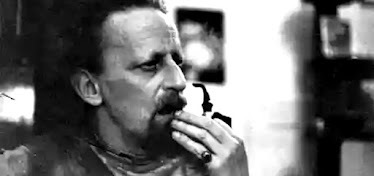
His most recent book, Why should I read books if the 99% is shit? had become to his surprise an enormous success. Some Lithuanian publishers that in the past never considered his works started inviting him to lecture to Vilniaus Universitetas students of Literature and to some book presentations in the city.
During these lectures, he was many times asked why he thought that 90% of published books were crap.
In his support, he mentioned Sturgeon's law.
Many of the people he lectured didn't know anything of Sturgeon’s law. So he had to recap it for them. Sturgeon's law is an adage - he used to start - that states that 90% of everything is crap. It was coined by Theodore Sturgeon, an American science fiction author and critic, who was tired of defending his genre from critics who used the worst examples of science fiction as ammunition against him. He realized that most works in other fields were also low-quality, and so science fiction was no different.
He first expressed his law around 1951 at a talk at New York University, and later wrote it in his book review column for Venture magazine in 1957. He also called it Sturgeon’s Revelation, and added some corollaries to explain his point of view.
After repeating this refrain there was always someone who objected that it was a very subjective opinion that 90% of published books are crud.
To these people he objected it's not subjective but it's reality. And whoever thinks it's subjective is because it's part of the 90%. But according to him, 90% was little, but 99% was reality. Whereupon many got up and left.
And obviously, this boutade of his did not please the Lithuanian publishing houses who boycotted him and never invited him again.
TO BE CONTINUED (MAYBE)...
Follow me on Substack

May 21, 2023
An unexpected attraction (Third part)

They are two exosomes. Both gays. One is Iranian, the other, the one you like, is Finnish.
He was disoriented. What she was talking about? How did she know that he liked the Finnish guy?
Actually, I do not understand what you want? And...who are you?
My name is Eiva. I come here to work, like you. I noticed how often you glance at them, above all at him. And she hinted at him with the cup of coffee she was holding in her hand.
They are not nice guys, I tell you, are both pervs.
She seemed jealous. He had that impression. But jealous for what? It was the first time he saw her.
Why did you say they are exosomes? He asked. He was curious about that strange definition.
They are extraneous bodies, they act in a way which is different from the way we usually do here in Lithuania. We are not a multicultural society, we like to hold to what we are and have been. Do you understand?
I think so, he replied. They are scandalous in your eyes.
Yes, they are...are you married? She asked, bluntly.
Yes, I am. Why? Does it count for you?
No, I asked just for curiosity.
Do I look like a married man?
Yes.
He laughed. Yes, I am married and I love my wife.
She's Lithuanian I imagine.
Yes. You imagine well. What about you?
I am single.
Are you looking for a partner?
Not really. I live well, alone. I like observing people, that's my favourite diversion at the moment.
Did you observe me?
Yes.
Why?
I don't know. A sort of energy was coming from you.
He paused. She was saying the same he was thinking in the end. Energy.
But your energy was not directed to me. Was always direct to that Finnish guy.
How do you know them?
I talked to them sometimes. But I don't like them. So, I stopped talking to them.
You made it quite clear.
But if you have a wife, why do you want him?
What make you believe that I want him?
The way you were looking at him. The energy you proved watching him.
And she was now facing him defiantly. But he thought instead, she was "eager".
I...he replied...I (and he was searching for and weighing words)...think they entertain me.
They entertain you?
It's a bore to stay six or eight hours here...so they are my diversion...in the end, I observe as you observe. As you feel pleasure observing, I feel pleasure watching them...I think this is the same for me.
But this said, he felt that that sentence was a too-expected response, sort of a stage direction in a play (now respond vaguely and indefinitely).
They, both, fell silent.
Outside, beyond the big window it was a still lovely day hot and sunny. The summer was already there.
TO BE CONTINUED (MAYBE)...
Follow me on Substack

La metafisica del gatto nero
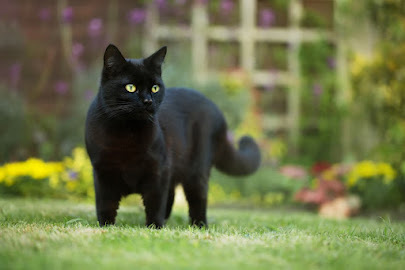
Mas que melhor metafísica que a delas,
Que é a de não saber para que vivem
Nem saber que o não sabem?
(Fernando Pessoa) [1]
Che mondo si vedrà
con gli occhi di un gatto
nero che il mondo guarda
che lui sempre disprezza e
teme? Che male fatto
ha, a quel mondo lontano?
Unico torto: nero è.
E passa fra gli uomini
i giorni suoi ignaro.
Forse che mai una volta
pensò: ma che vuoi tu
che le palle ti tocchi e
menagramo balocchi
il pisello pari al tuo
cervello? Non capisce
infima però il gatto
la sua nera natura
lo condanna in eterno
per paura - e a suo scherno.
---------------
[1] Ma quale metafisica meglio della loro,
che è quella di non sapere perché vivono
né sapere che non lo sanno?
Follow me on Substack

May 19, 2023
Io veglierò la notte
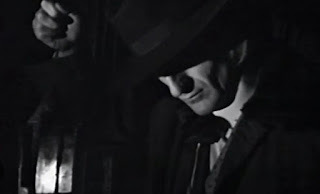
Io veglierò la notte e se la pioggia
cadrà ne ascolterò il suono metallico
e la mattina saluterò di corvi
il canto che da neri rami - al sole
si benedicono di luce nuova
che si allontana dai colpi del gelo.
Io veglierò la notte e aspetterò la
chiamata di quest'altra primavera.
Follow me on Substack

May 17, 2023
La volata
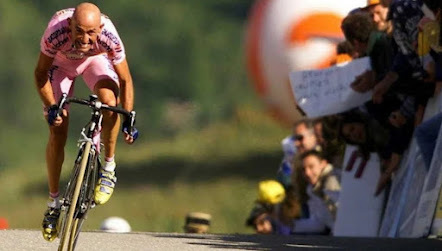
Quando muoio, che sarà? chi testimonierà me?
Chi terrà la memoria della mia venuta e dipartita?
Chi vedrà ancora i segni lasciati dietro - di ciò che ero
pensavo, amavo, soffrivo e gioivo?
Ero uno sciocco? O ero un esempio per chi in me credeva?
Non amavo troppo ciò che ero, ma mi accettavo, e mi chiamavo
e nel mio nome risuonavo e rinfrancavo.
Ero io, ero quello che ero divenuto, giorno dopo giorno.
E questo è tutto. Ero io. Solo io. Non mi amavo forse - ma nemmeno mi odiavo.
Ma ora che mi appresso, che vedo il traguardouna lunga dirittura ma ancora lenta è la volata.
Non c'è vincitore, perché l'unicoche corre sono io. Solo io.
E non anelo alla vittoria ma nemmeno mi sottraggo.
E' una corsa lunga, una tappa che pareva senza fine.Ma ora sono in testa, tiro la volata e sono l'unico in gruppo, senza squadra.



